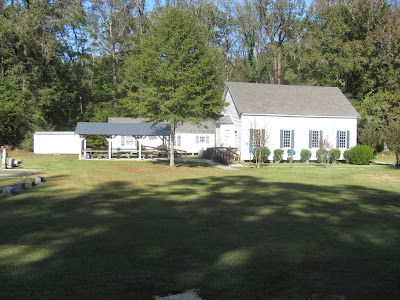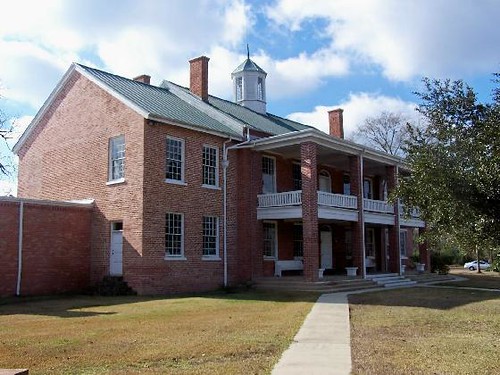Photograph Courtesy of Library of Congress
Edmund Baker's attorney writes a letter to the Freedmen Bureau detailing Baker's failure to receive remedy in the Mississippi court system. Baker contracted, in January 1866 with John H Davis, for his three minor teenage children to work on Davis' farm. Davis refused to give Baker his children at the end of 1866. According to the contract between Baker and Davis, one fourth of what was cultivated on the Davis farm in 1866 was to be given to Edmund Baker. Davis did not abide by the contract.
As of January 1866, Elijah was about 17 years, Wilson was about 15, and Julia was about 13 years, per the 1870 and 1880 censuses records.
Gallatin, Miss
Dec 4th 1867
To The Office of the
F. B. & R - Brookhaven Miss
Sir,
In the year 1866, Baker contracted with one John H Davis (wittiness by his written contract) that his minor children - Elijah, Wilson, and Julia ? work upon the lands of Davis & c - and should receive as compensation one fourth part of the products of the plantation as cultivated for the year 1866.
The cotton was ginned by Capt Hezekiah Brown and the first five bales weighed as follows 428, 490, 462, 520, and the last two bales (seven in all) weighed 840 lbs - leaving Edmond Baker share (1/4) - 682 and a half lbs - ginned cotton of which Edmond has received only one bale weighing 410 lbs leaving a balance of 272 and a half lbs, which at the price of cotton sold for last January should have paid Edmund Baker between $90 and $100 dollars.
Davis gave Baker only about 30 bu of corn. Davis gathered the corn for his stock, and for his bread from the fields before it was gathered - allowing Baker nothing for the part so consumed by Davis.
There was fodder and hay gathered, and some peas but Davis allowed Baker nothing for these things. And after allowing Baker 30 bushels of corn afterwards claimed it, and refused to let Baker have a single bushel.
At the close of the year 1866, Davis and his son John Davis, together refused to let Elijah and Julia leave their place, and when Baker came to move them to his house, the said Davises, ? off the father, and with threats forbid Baker to come on their premises again. Afterwards the older Davis agreed that Edmund Baker might secure his daughter Julia (for whom Baker for particular reasons felt much anxiety) but the younger Davis threaten to kill Baker if he did not immediately leave the premises without his daughter.
He the younger Davis claimed to have hired Julia by a contract with herself and the older Davis claimed to retain Elijah by a similar contract.
At the time that Baker went to Davis after his children with a wagon to move them and their affects, Simon Ruffin, Dick Overton, Ned Smith, Edwin Ruffin, freedmen went with him, they all being with Baker at Col Burnley's (their former owner) and Davis having sent them word to come to him to hire for the next year and that he would pay one of them $20 which he owed him.
After the Davises had refused to let Baker have his children, as above stated. I directed Baker to make affidavit before the clerk of the circuit court and get the writ of habea corpus issued and Baker came to Gallatin for that purpose, which when the Davises found out, they came before the county court and prosecuted Baker and all the men who were in his company for criminal conduct in coming upon the place.
In the trial, somehow the judge of the county court found a verdict against all of them and sentenced them to pay a fine of $10 and costs, and committed them to jail in case the money was not paid...
Afterwards, Baker the present summer, did get a writ of habeas corpus issued, for the detention of his two children Elijah and Julia, by the Davises. And in the trial, the certificate of Col Burnley, their former owner, as well as the oath of Baker their father was given in evidence that they were under the age of 21 at the time
The Davises did not attempt to ? this evidence as to the girl Julia, but they did as to Elijah. Still the court (that is the Judge of Probate) gave a decision against Baker, so that Davis carried the children of Baker home with him and has yet contray to the efforts and wishes of their father
These are all the facts in the case as I understand them and I think that they demonstrate that great injustice has been done to the rights of Baker under the laws of Mississippi and that you have properly ? and jurisdiction of this whole matter. Baker was at great expense and loss of time. tried to get justice under the laws, but as I think failed signally.
I should state that the boy Elijah is very simple and is subject to a sort of spams or fits and is easily made subservient to designing parties.
The records of the court here - the County court - show that the statement I have made as to the proceedings is correct, and the contract, and evidence of Baker, and the mother of the children, and that of Colonel Burnley will show the minority of the children.
You would do me a favor by not divulging to the Davises or their friends that I have written to the Freedman's Bureau on this subject as they would excite a great prejudice to my injury.
? very respectifully
D. W. McRae of the firm
MaRae & Lanikin?
Attys & C
Edmund Baker is not related to me. He lived on Somerset Plantation with some of my family members.
SOURCE:
Mississippi, Freedmen's Bureau Field Office Records, 1865-1872," images, FamilySearch (https://familysearch.org/pal:/MM9.3.1/TH-1951-45832-30962-44?cc=2333768&wc=9L3S-92S:1078469102,1078468007 : accessed 12 Nov 2014), Brookhaven (subassistant commissioner) > Roll 11, Registered letters received, Nov 1867-Aug 1868 > images 10-14 of 265; citing NARA microfilm publication M1907, National Archives and Records Administration, Washington, D.C.












.jpeg)
.jpeg)
.jpeg)



.tif)



















.JPG)









